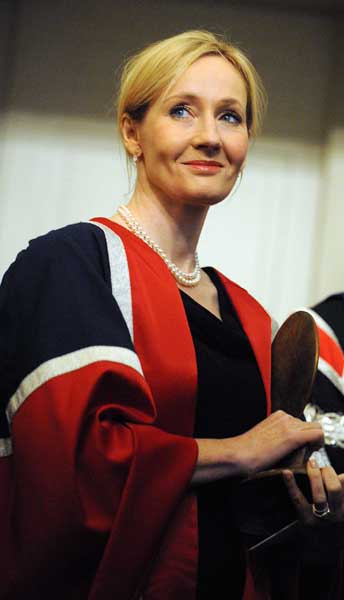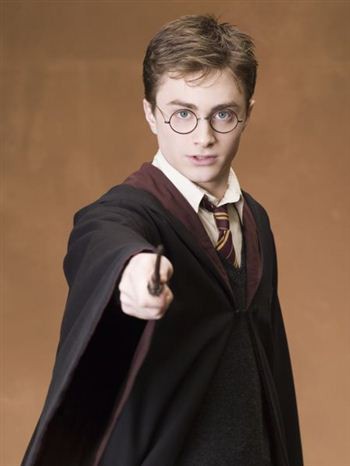AT least 22 academics across the globe have earned their PhDs after spending years studying Harry Potter.
And a further 37 master’s degrees have been awarded following scholarly research into JK Rowling’s celebrated series of wizarding novels.
The learned papers included an examination of magical food in the series, the theological implications of Harry Potter books for children’s identities, and an investigation into translating the works into Arabic.
The burgeoning industry in the academic study of Harry Potter is said to be the result of avid childhood bookworms growing up and entering some of the world’s most elite universities.
The figures were revealed through a search of the academic database ProQuest, which contains over 3.8m dissertations from universities across the globe.
At the University of Wyoming, a master’s was awarded to Megan Friesen after she turned in a 90-page paper titled: “Harry Potter and the long commute: Trends in audio books.”

And in 2012 the University of Florida awarded a master’s degree to Leisa Clark for her investigation: “ “Butterbeer, Cauldron Cakes, and Fizzing Whizzbees: Food in J. K. Rowling’s “Harry Potter” series.”
Earlier this year Julia Morris earned her master’s at the University of North Carolina at Charlotte on the back of a 75-page piece: “The magic of Harry Potter for student athletes.”
Closer to home, a University of Glasgow student was also awarded a master’s of philosophy degree for their piece: “A literary-linguistic study of heroism in Harry Potter.”
The abstract reads: “The representation of Harry as a hero does not only rely on portraying him engaging in high-agency, goal-achieving activities but also on using a range of literary-linguistic resources, in addition to Ergativity/Transitivity, to highlight his role as a clever magical hero. “
PhD dissertations – which earn their authors the title of doctor – were similarly specialised.
They include titles such as: “Issues and strategies of subtitling cultural references : Harry Potter movies in Arabic” awarded by the University of Salford to now-Dr Altahri in 2013.
In 2007, Edinburgh University awarded a PhD to Daniel Pawley for his work “Popular privation: suffering in fan cultures” which featured “a case study approach to the online fan culture of the Harry Potter books.”
And earlier this year Dr Anastasia Apostolides earned her doctorate in theology at the University of Praetoria in South Africa.
Her submission was titled: “Kids seeking alternative identity and spirituality through the lived theology glimpsed in the Harry Potter series.”

Dr Trista Merrill submitted a 229 page PhD dissertation titled “Crossing boundaries on a bolt of lightning: Mythic, pedagogical and techno-cultural approaches to Harry Potter” at the State University of New York at Binghamton in 2003.
Now working as Professor of English at Finger Lakes Community College in the state of New York, she said that growing up she had “actively avoided” Rowling’s series because of their popularity, but was encouraged to use the series by a keen supervisor.
She said: “The decision to categorize the books as children’s literature is somewhat arbitrary. Just because the first book centres on an 11 year old boy does not mean that the book needs to be relegated to section of library with smaller chairs and brightly colored carpets.”
She added: “It breaks boundaries of all kinds – it invites the kind of close reading that countless educators long to see in their students, it blurs lines between children’s literature and adult literature, it draws from the time-honored traditions of fantasy and mythology and school stories, but at the same time creates something that is very much current and new.
“It is a modern epic and when have scholars ever not studied epics?”
The professor, who also teaches a Harry Potter course, said: “I think that the children who grew up reading Harry Potter are now the ones pursuing higher education.”
Harry Potter’s invasion of academia has not always been looked on so kindly.
In 2012 a two day academic conference titled “A Brand of Fictional Magic: Reading Harry Potter as Literature” at St Andrew’s University was met with disapproval by some.
Speaking about the event, John Mullan, professor of English at University College London, said: ”I’m not against Harry Potter, my children loved it, [but] Harry Potter is for children, not for grownups.”

